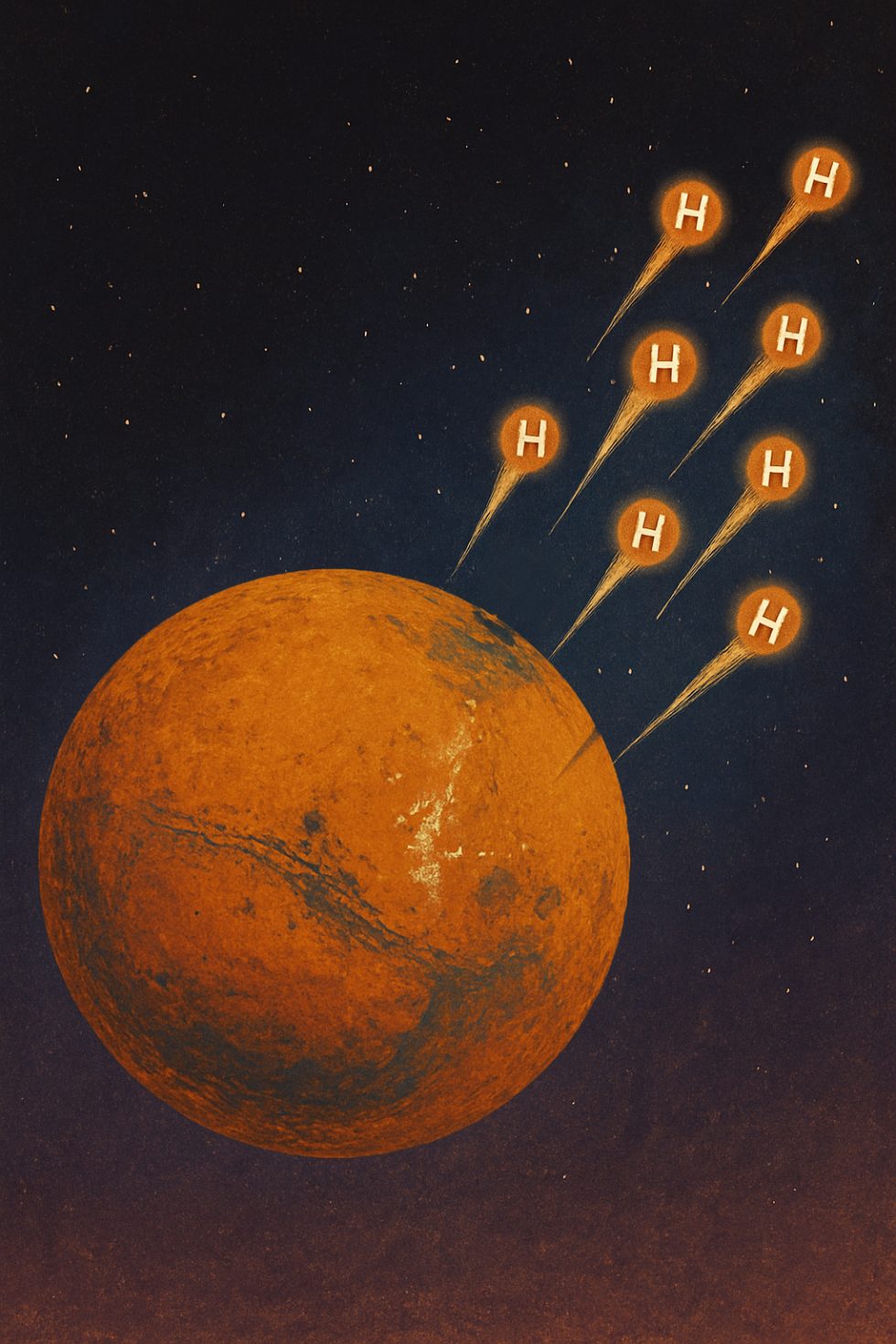New clues about how Mars lost its water
Mars is today an extremely arid planet, whose pressure and temperature conditions prevent liquid water from existing on its surface. However, geological and mineralogical evidence suggests that, in the distant past, the red planet hosted large volumes of water in the form of rivers, lakes, and even oceans. Despite decades of research, one of the great mysteries about Martian history remains unresolved: what happened to all that water?
A new study led by members of the GAPT group and published in Nature Astronomy, has analyzed the role of obliquity—the tilt of the planet's rotational axis—in the loss of hydrogen, and therefore water, from the Martian atmosphere over time.
Mars's orbit experiences periodic variations that significantly influence its climate. One of the most significant is the change in the tilt of its rotational axis, known as obliquity. Although this value is currently similar to Earth's—around 25 degrees—on Mars it has fluctuated widely over the past hundreds of millions of years, with an average of around 35 degrees.
The study explored the relationship between Mars' obliquity and water loss over time, revealing that during periods when the axial tilt reached high values, insolation at the poles increased. This intensified the water cycle and generated a warmer, more humid atmosphere. Under these conditions, water vapor reached higher layers of the atmosphere, where it was more vulnerable to solar radiation, which broke it down into hydrogen and oxygen atoms. Being very light, hydrogen atoms could more easily escape into space, thus contributing to the planet's water loss. For an obliquity of 35 degrees, the annualy-averaged H escape rate is about 20 times larger than for current conditions.
The study shows that hydrogen loss during periods of high obliquity could explain the disappearance of an amount of water equivalent to a global ocean about 80 meters deep. This value coincides with the lower limit of estimates of the water that Mars once held. Thus, hydrogen escape played a more important role in the drying process of Mars than previously thought, which is key to reconstructing how much water the planet has lost to space throughout its history,
More details can be found at https://www.iaa.csic.es/noticia/nuevas-claves-para-entender-la-perdida-d...
The publication (Gilli, Gonzalez-Galindo et al., Nature Astronomy) can be accessed at: https://www.nature.com/articles/s41550-025-02561-3




